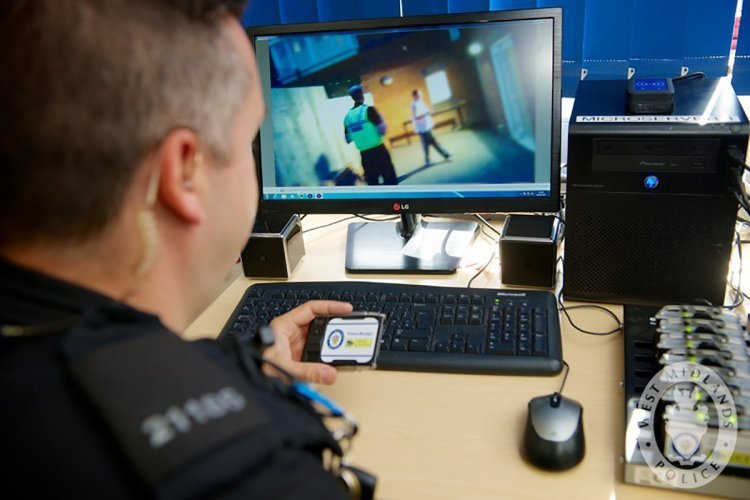Counter Surveillance Services and Questioned Document Services: Ensuring Privacy and Authenticity in Today's World
Counter surveillance services and questioned document services provide vital expertise for privacy protection and document authentication, addressing concerns about personal and business privacy, authenticity, and trust in documentation in a world increasingly driven by technology. Below, we examine the functions, importance, and ways in which these services contribute to a more secure and safe environment.

In a world increasingly driven by technology, both personal and business privacy are crucial, as are authenticity and trust in documentation. Counter surveillance services and questioned document services address these concerns, offering essential expertise for privacy protection and document authentication. Below, we explore how these services work, their significance, and how they contribute to a safer, more secure environment.
Understanding Counter Surveillance Services
Counter surveillance services are specialized solutions designed to detect and prevent unauthorized monitoring, including audio and video surveillance. With the rise of digital spying technologies, these services play a pivotal role for both individuals and corporations who are targets of illicit surveillance, such as business espionage or personal privacy intrusions.
How Counter Surveillance Works
- Detection of Surveillance Equipment: Experts in counter surveillance use specialized equipment to detect hidden microphones, cameras, and GPS trackers that might be placed in homes, offices, or vehicles. Devices like radio frequency (RF) detectors, non-linear junction detectors, and thermal cameras are commonly used in these scans.
- Electronic Sweeps: Professional teams conduct thorough electronic sweeps of designated areas to locate and neutralize surveillance equipment. These sweeps may include a comprehensive analysis of network traffic to identify any unauthorized digital surveillance.
- Risk Assessment and Prevention: Beyond just detection, counter surveillance specialists assess potential vulnerabilities in a client’s environment. This includes evaluating possible access points for bugging and advising on security upgrades to prevent future surveillance risks.
Who Benefits from Counter Surveillance Services?
- Corporate Entities: Businesses often use counter surveillance to protect sensitive information, intellectual property, and confidential business plans. Corporate espionage is a genuine threat, making it essential for companies to safeguard against it.
- High-Profile Individuals: Executives, celebrities, and other high-profile individuals may seek counter surveillance to protect their privacy from prying eyes.
- Private Citizens: In some cases, private citizens may find themselves the targets of unauthorized surveillance, often in cases related to personal disputes or legal issues. Counter surveillance services can help protect their privacy and peace of mind.
The Importance of Questioned Document Services
While counter surveillance protects against unauthorized information gathering, questioned documents service play a critical role in verifying the authenticity of documents. These services are particularly relevant in legal, corporate, and governmental contexts, where the validity of a document can have significant implications.
How Questioned Document Services Work
Questioned document experts, often called forensic document examiners, use a combination of scientific techniques and expert analysis to assess documents. Here’s a look at how these services operate:
- Visual Examination: The document is carefully inspected for any physical signs of alteration, such as erasures, obliterations, or added text. Examiners look for inconsistencies in ink color, paper type, and handwriting.
- Ink and Paper Analysis: Advanced testing, such as chromatography and spectral analysis, is used to examine the composition of inks and papers. This helps in determining whether a document was created at the time it claims to have been.
- Handwriting Analysis: For handwritten documents, forensic experts analyze the handwriting style, pressure patterns, and spacing to verify its authenticity. This process is essential for cases involving wills, contracts, or signatures.
- Digital Document Forensics: As electronic documents become more common, forensic specialists use digital forensics to trace the origin, metadata, and alterations in digital files. This is critical in cases involving digital signatures, scanned documents, or electronic records.
Applications of Questioned Document Services
- Legal Cases: Questioned document services are essential in civil and criminal cases, where document authenticity can impact case outcomes. Lawyers frequently rely on forensic document examiners to support their cases with expert evidence.
- Business and Corporate Fraud Prevention: Companies use these services to verify contracts, agreements, and signatures. Ensuring document authenticity helps prevent fraud and protects a business’s reputation.
- Government and Public Sector: Government agencies rely on questioned document experts to detect forged identification documents, counterfeit currency, and altered official records.
How These Services Enhance Security and Trust
Both counter surveillance and questioned document services strengthen security and trust by preventing unauthorized access to information and verifying document authenticity. Together, they enable individuals, businesses, and governments to operate with greater assurance that their privacy and information are protected.
Why Professionals Are Essential
Hiring experienced professionals is key to effective counter surveillance and questioned document services. Specialists in these fields have the knowledge, tools, and expertise to identify risks and irregularities that might go unnoticed by the untrained eye. Their services are an investment in the safety, privacy, and credibility of an organization or individual.
Conclusion
Counter surveillance services and questioned document services address two critical aspects of security: the prevention of unauthorized information gathering and the verification of document authenticity. These services are invaluable in today’s world, where privacy and credibility are frequently under threat.
What's Your Reaction?












